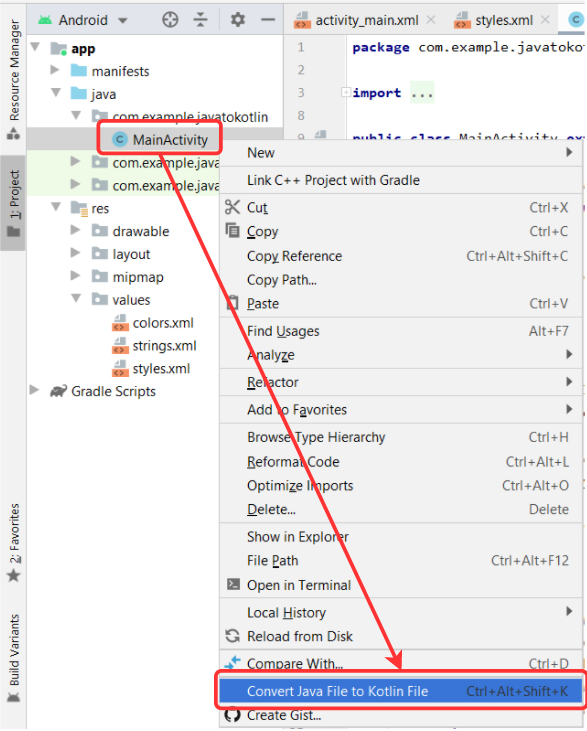
However, it’s not a complete guide, as there’s so much more you can do with Kotlin - like using extensions or concurrency with coroutines, for starters. This article is intended to help you get started with Java-to-Kotlin conversions. Under the hood, this plugin uses the already-known conversion feature from Android Studio, but it does the proper renaming operation on Git before doing the actual code transformation. After installation, it’ll also show up in the Code menu. The second way is using a handy IDE plugin named Multiple File Kotlin Converter that’s available within the IDE Plugin Marketplace (File > Settings > Plugins). Android Studio will recognize it as Java code and ask if you want to convert it to Kotlin. This will properly rename the file in Git.Įventually paste the clipboard’s contents over the content in the editor. Right-click the Editor tab of the file, choose Rename File…, and change the extension from. There are two simple ways you can do this within Android Studio. It also anticipates nullability according to initial values.

The IDE conversion feature recognizes and annotations. 💡 Tip: Use non-nullable types wherever possible. Because null types in Java are often insufficiently annotated, it’s common to find yourself in situations where you won’t even be expecting them. That said, it’s very easy to mix up the two when, for example, calling a Java function that returns a null value and assigning it to a non-nullable Kotlin field. Read more about this in our Handling Nullability in Your Code blog post.Īs long as you’re staying within Kotlin, null safety isn’t much of a problem, because the compiler doesn’t even let you compile if you mix up nullable and non-nullable types. For more insight into this topic, refer to the Kotlin documentation on null safety. The most important thing in the process is to be aware of nullable types, which you can assign both normal values and null values to.

So this blog post will provide you with an overview of best practices for performing code conversion. This gets a lot of the job done, but rest assured, you won’t get away without some manual labor. There’s a feature in Android Studio that helps a lot with this you can find it in the main menu under Code > Convert Java File to Kotlin File. Sooner or later, presumably every Android developer will run into the situation where they’ll want to convert Java code to Kotlin to take advantage of its powerful features.


 0 kommentar(er)
0 kommentar(er)
